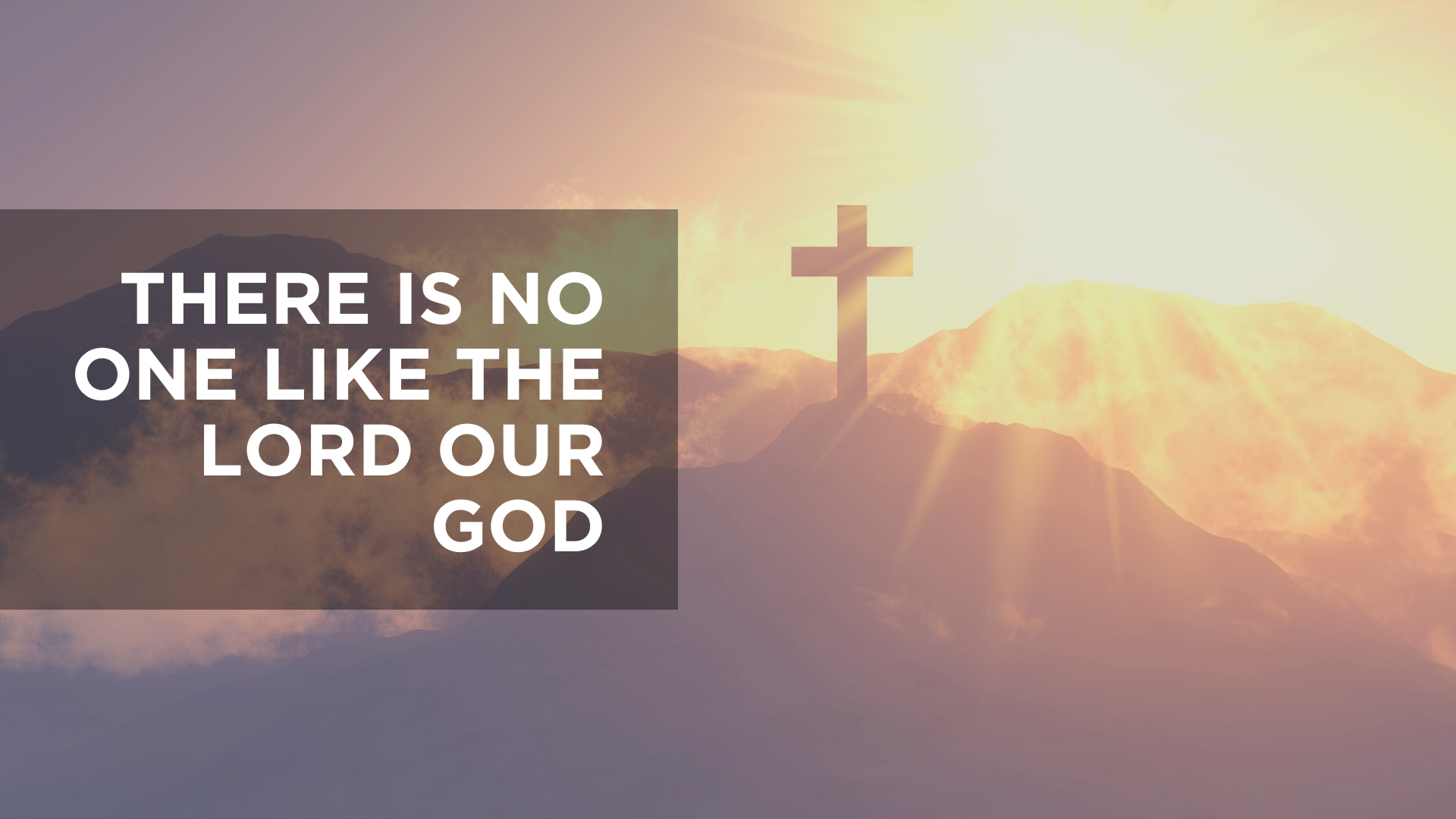There Is No One Like the Lord Our God
September 21, 2023

There Is No One Like the Lord Our God
By Brooke Holt
"Moses said, 'Be it as you say, so that you may know that there is no one like the Lord our God. The frogs shall go away from you and your houses and your servants and your people. They shall be left only in the Nile.'" Exodus 8:10b-11 (“The Great ‘I AM’” Study Reading: Exodus 8:1-15)
You might remember the scene in "101 Dalmatians" when the little whelps spill out of every shoe, coat pocket, drawer, cupboard, and basket in the house. The second plague offers a similar scene, except with disgusting frogs instead of adorable puppies. And millions of the frogs, not a hundred, invaded every inch of living space – floors, walls, dishes, bedding, clothing – as well as rivers, wells, crop fields, and pastures. They contaminated the food and water stores. They used every surface as a froggy litter box. Even as the Egyptians tried to sleep, webbed feet and a cacophony of croaking amphibians bombarded them in their beds.
Right off the bat, the plague of frogs assaulted four of the five human senses: sight, taste, touch, and hearing. (I can’t imagine it smelled great either, but we will revisit that.) Like the contamination of the Nile, it disrupted every aspect of the Egyptians’ daily life and threatened their very survival. It also served as a direct challenge to the Lord’s first foe in round 2 of “God vs. gods”. Heket, the pagan goddess of fertility, had the head of a frog thereby making the creatures infesting the land sacred. The Egyptians could not kill them. The frogs certainly symbolized fertility, but God had made it a curse instead of a blessing. And yet, Heket was nowhere to be found as her little icons invaded Egypt, and the people suffered.
So, Pharaoh’s magicians stepped up. Once again, they could replicate God’s plague on a miniature scale. You might say they fought frogs with frogs (I couldn’t resist). I know the sorcerers were trying to play “anything you can do” with God, but the fact they called forth more frogs strikes me as a little bit humorous. Wouldn’t removing the multitude of creatures be a more impressive show of power? But they, like Heket and the Nile god, could not undo the work of the Lord. They could not deliver the people of Egypt because “there is no one like the Lord our God” (verse 10).
For a brief moment, it seemed as if Pharaoh got the message. He promised to let the Israelites worship in the wilderness if Moses asked God to take away the frogs. Moses did so, and the Lord agreed to end the plague. But the frogs did not just vanish into thin air; they died en masse right where they were. God wanted the Egyptians to remember his mighty acts. In both of the first two plagues (and several to come), the stench of death and decay permeated the land for days. Scent has a stronger connection to memory than any other sense. The Egyptians also had to clear the carcasses from every nook and cranny of their homes and dispose of them. All of them. Frogs would no longer be a sign of Heket’s blessing or good will, but rather a reminder of God’s power over all the earth.
Modern culture is filled with frogs, meaningless symbols of status, wealth, success, intelligence, athleticism. And we have idols aplenty competing to pull our attention away from the Lord and his plan. We see it right there in the title of a TV talent show, for crying out loud! We can so easily get distracted and lose our way. My Christian Ethics professor, Dr. Brown, described sin as a slippery slope. We take one tiny step away from the Lord’s path, and then another, and before we know it, we are miles off course. But, unlike the deities of Egypt, our God will never abandon us. If we seek him, he will always provide a path of deliverance. He will expose the frogs and false gods in our lives and lead us back to himself. He will forgive us, rejoicing as he welcomes us back to the fold.
Today, let us ask the Lord to search our hearts, minds, and lives for any sin and idolatry so that we may turn back fully to him. In his love and grace, we find healing for our weary souls and freedom from the plagues of this world.
Reflection:
Have you walked that slippery slope and found yourself in the clutches of sin and/or idolatry? Spend some time repenting and ask the Lord to lead you on his path to victory. We would love to hear your thoughts in the comments.
Want to know more about the Book of Exodus? Check out "The Great 'I AM"" study written by Charlie and Brooke Holt below. Accompanying teaching videos included.
Related Resource:
Come explore the grand story of God as the one who knows and loves his people. In one of the greatest love stories ever told, The Book of Exodus reveals God as Yahweh, the Great “I AM.” He is the transcendent, all-powerful creator of all things who defeated the greatest powers of the earth. This same God would have his people know and love him in an intimate and personal way. The Great “I AM” – A Study of the Book of Exodus is a 9-week study consisting of a small group study guide combined with weekly video teachings. Come and meet The Great “I AM”.

Leave a comment
Comments will be approved before showing up.
























